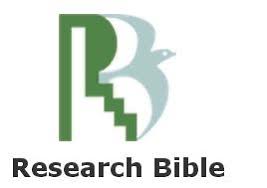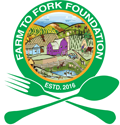Evaluation of knowledge, attitude and practice (KAP) of farmers regarding organic farming
DOI:
https://doi.org/10.5455/faa.102709Keywords:
Attitude, farmer, knowledge, practice, organic farmingAbstract
Organic agricultural products are gaining popularity among the consumers day by day. Farmers are also becoming interested in producing organic agricultural commodities. The production strategy of organic food commodi- ties is environment friendly and of high economic potential. However, the knowledge, attitude and practice (KAP) of farmers regarding organic farm- ing is merely assessed. The main purpose of the study was to evaluate the knowledge, attitude and practice of the farmers regarding organic farming. Data were collected from randomly selected 70 farmers from selected three villages named Ghola, Zoykhali and Shailmary of Jalma union of Batiaghata upazila under Khulna district of Bangladesh, through personal interview using an interview schedule. The eleven characteristics of the farmers which had been selected for the study were age, educational qualification, farm- ing experience, organic farming experience, family size, farm size, monthly family income, organizational participation, cosmopolitanism, extension me- dia contact and training on organic farming. The focus variables were the knowledge, attitude and practice of the farmers on organic farming. The respondents were asked to provide responses regarding the focus issues, and the given responses were recorded against the standard scale, and obtained scores were statistically analyzed for further interpretation. Majority (70%) of the respondents had medium knowledge, most (95.7%) of them had highly favorable attitude while their (51.4%) practice on organic farming was low. Among the ten practices, “application of cow dung in the field” was the highest practiced activity, while the least practiced activity was “regular soil test”. Among the selected eleven characteristics of the respondents, experience in organic farming (R2 = 0.145) (p < 0.05), cosmopolitanism (R2 = 0.357) (p < 0.01), extension media contact (R2 = 0.265) (p < 0.01) and training on organic farming (R2 = 0.107) (p < 0.05) showed significant posi- tive relationship with knowledge; while experience in farming (R2 = 0.135) (p < 0.05) and experience in organic farming (R2 = 0.059) (p < 0.01) showed significant positive relationship with their attitude towards organic farming; and cosmopolitanism (R2 = 0.149) showed significant (p < 0.01) positive relationship with practice of the farmers. By utilizing the highly favorable attitude of the farmers towards organic farming, the knowledge level of them could be increased through training and extension contact, and as a result the magnitude of practices could be increased in the long run. Necessary agricultural policy strategies should be formulated to enhance the organic farming activities by the farmers.
Downloads
Downloads
Published
How to Cite
Issue
Section
License
Copyright (c) 2020 by the author(s). This work is licensed under a Creative Commons.

This work is licensed under a Creative Commons Attribution-NonCommercial 4.0 International License.




















